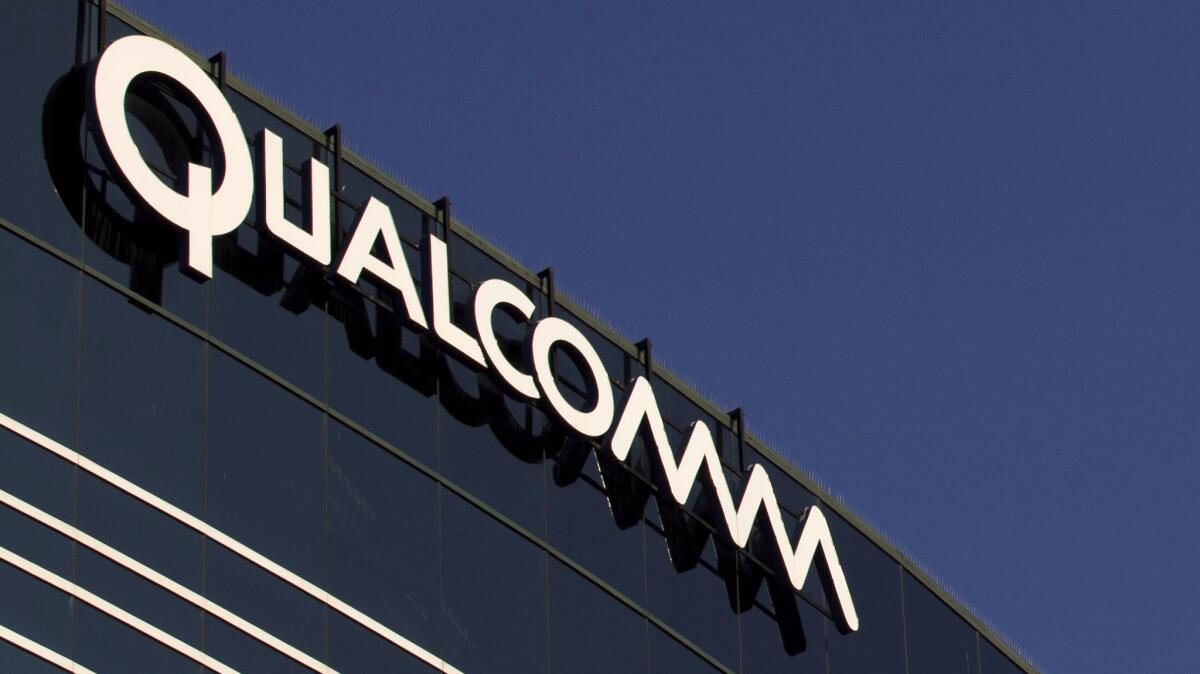Apple sues Qualcomm for $1 billion, depicting it as a shady monopolist

- Share via
Apple Inc. is suing mobile chip maker Qualcomm Inc. for $1 billion in a patent fight pitting the iPhone maker against one of its major suppliers.
The complaint filed Friday in a San Diego federal court depicts Qualcomm as a monopolist abusing its power in a key segment of the mobile chip market to extort royalties for iPhone innovations that have nothing to do with Qualcomm’s technology.
Apple says it has been cooperating with government regulators who have been investigating Qualcomm’s business practices, prompting Qualcomm to retaliate by withholding about $1 billion in scheduled payments.
In an email, Qualcomm General Counsel Don Rosenberg called Apple’s allegations “baseless.”
Qualcomm has said in the past that its 3G and 4G cellular patents are essential to what makes smartphones truly mobile, with the ability to link to the Internet from almost anywhere. The royalties it has been charging for these key technologies for more than two decades are not unreasonable, the San Diego company contends.
Cupertino, Calif.-based Apple launched its legal attack three days after the Federal Trade Commission filed a lawsuit alleging that Qualcomm has been imposing unfair licensing terms on manufacturers.
The FTC alleged that Qualcomm used its dominant market share in wireless chips to get excessive royalties on key, standard essential patents, which are supposed to be made available at reasonable rates under law.
The U.S. agency also accused Qualcomm of giving Apple rebates in exchange for being the exclusive supplier of cellular modems in iPhones from 2011 through 2015 — hurting competitors.
And the FTC lawsuit came a month after a South Korean regulator, the Korea Fair Trade Commission, fined Qualcomm $865 million over patent royalties. The company vowed to fight in South Korea’s courts.
Qualcomm has vigorously denied claims made by the FTC and the South Korean regulator, saying they are based on a flawed legal theory and inaccurate information about the mobile industry.
The company also faces investigations in Europe, Japan and Taiwan.
Staff writer Mike Freeman contributed to this report.
UPDATES:
5:10 p.m.: This article was updated with a comment from Qualcomm’s general counsel.
3:45 p.m.: This article was updated with additional background information.
This article was originally published at 3:05 p.m.



